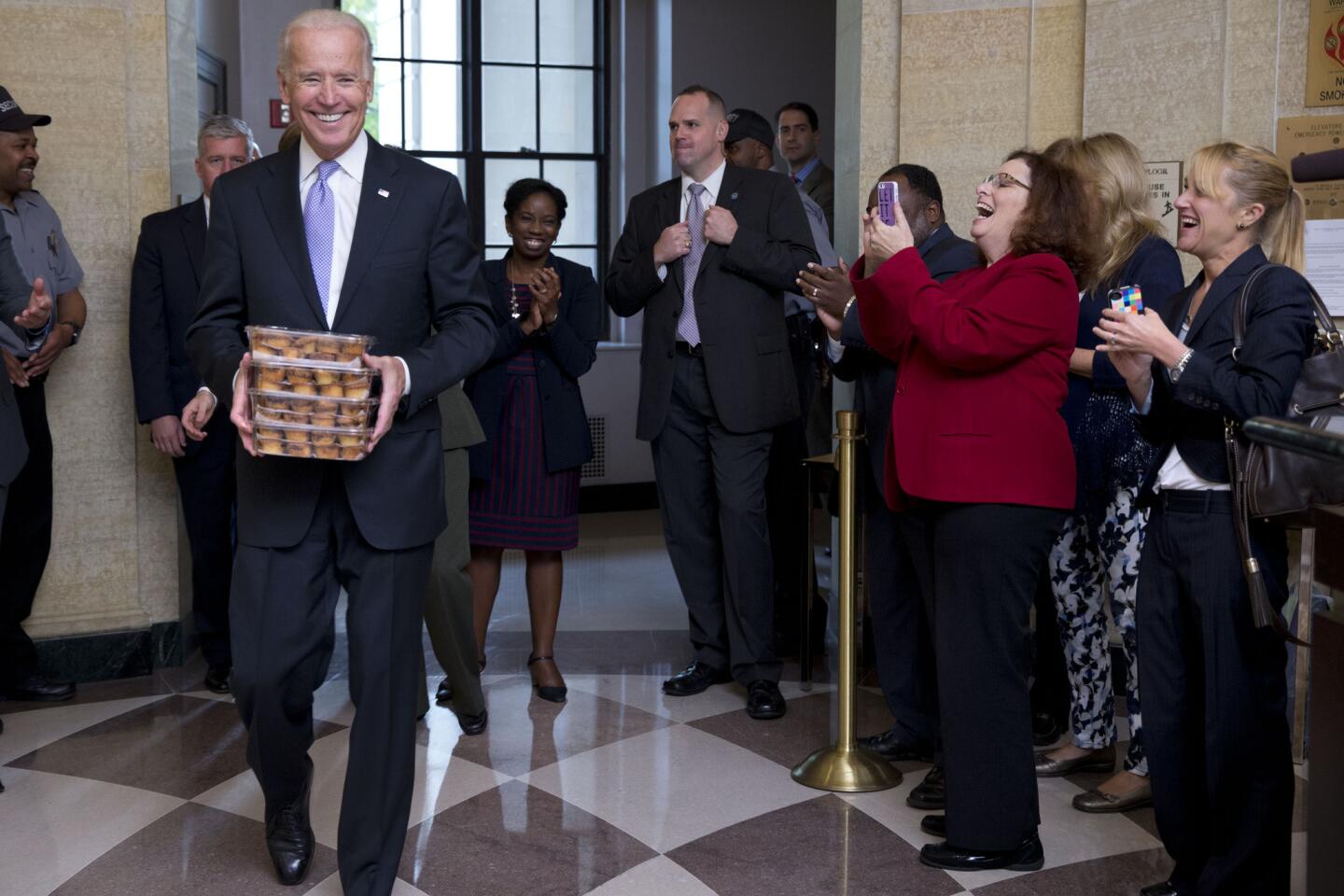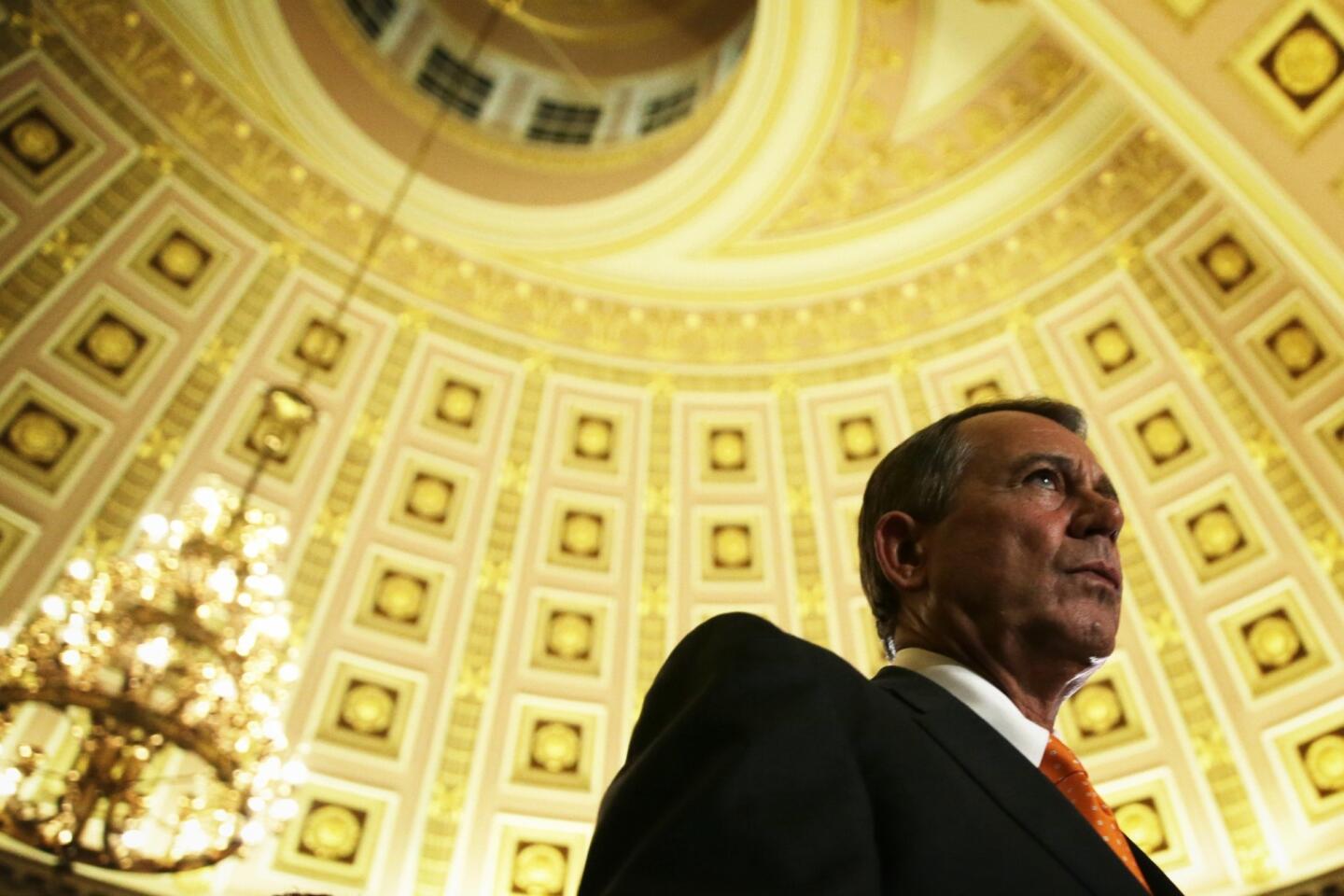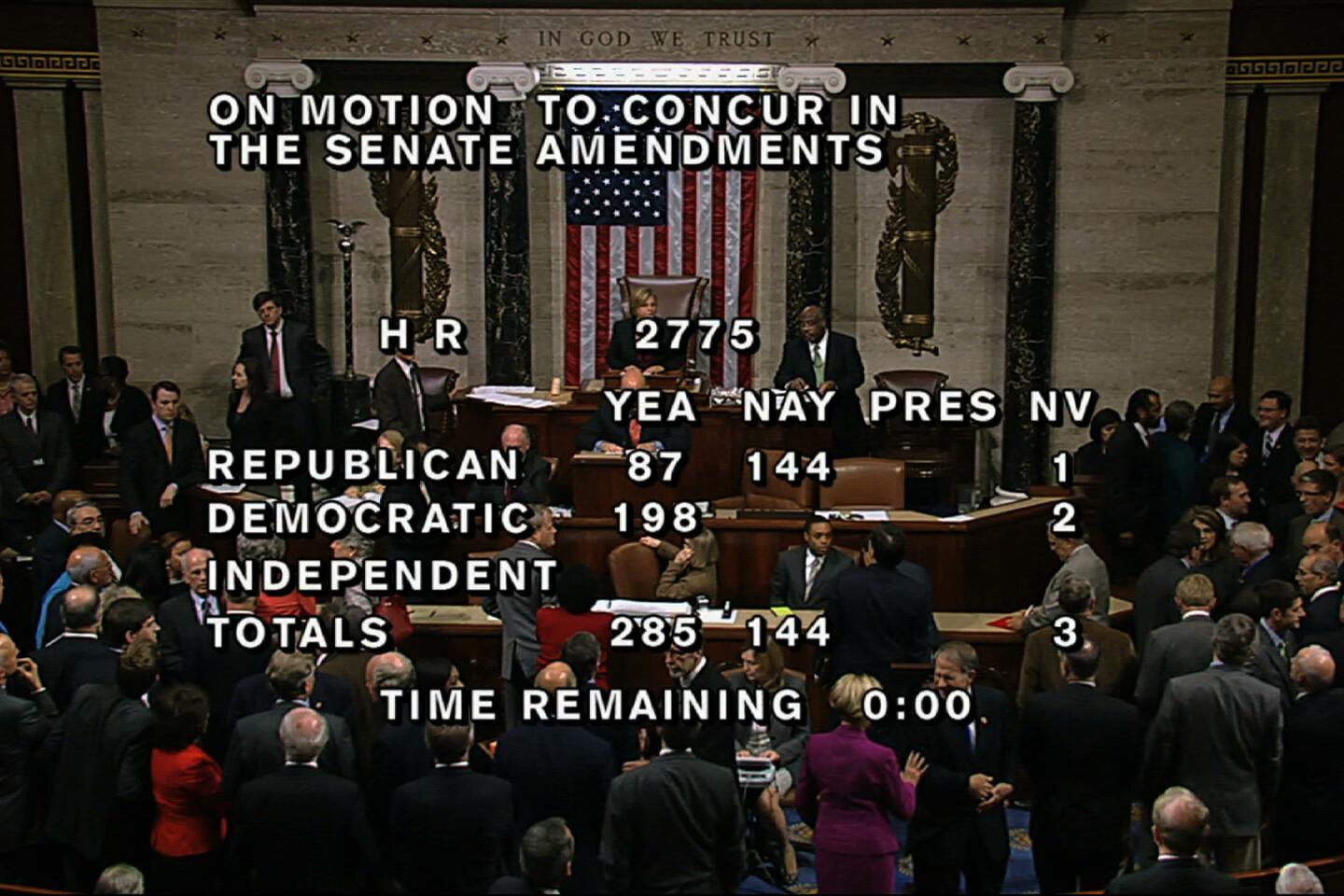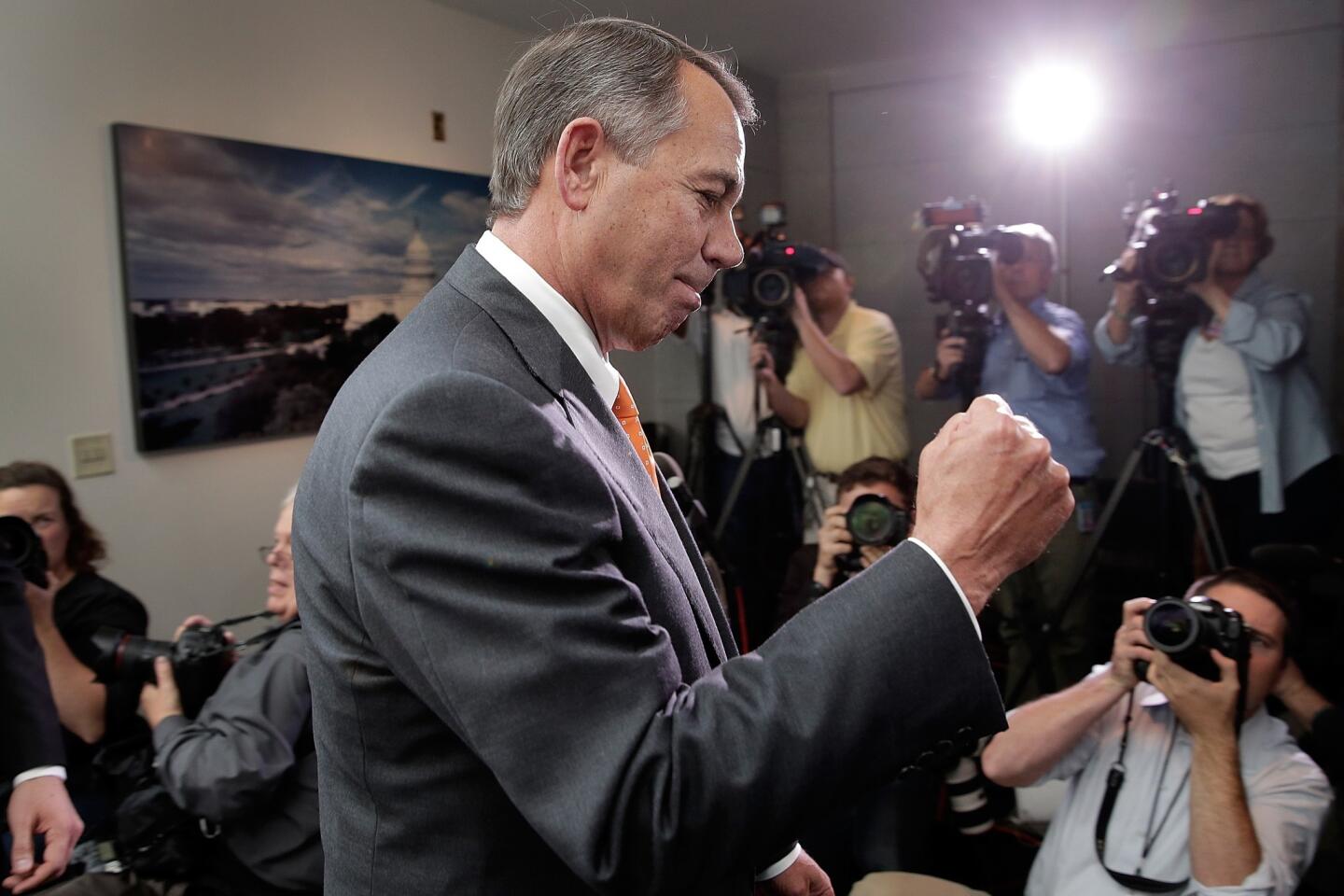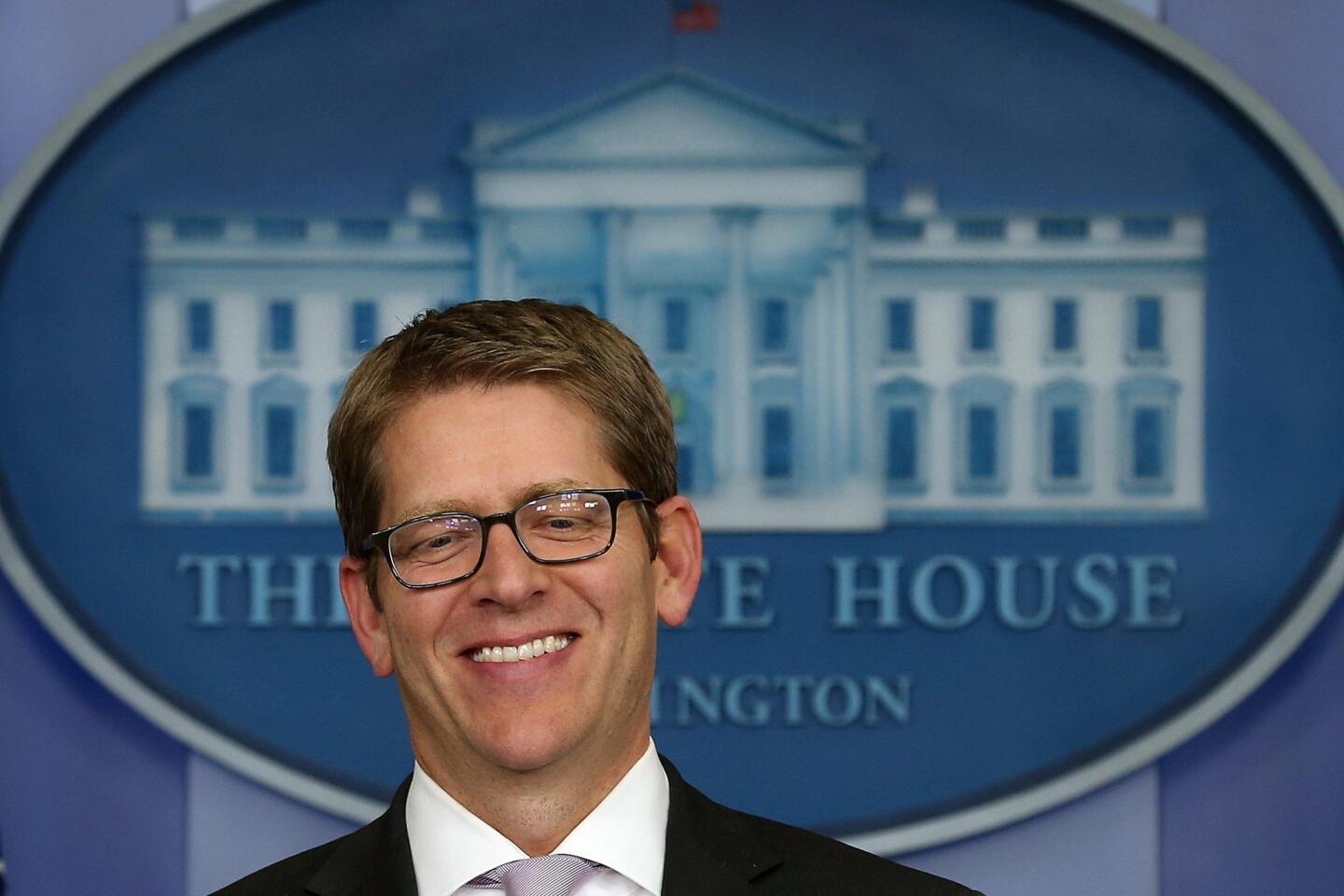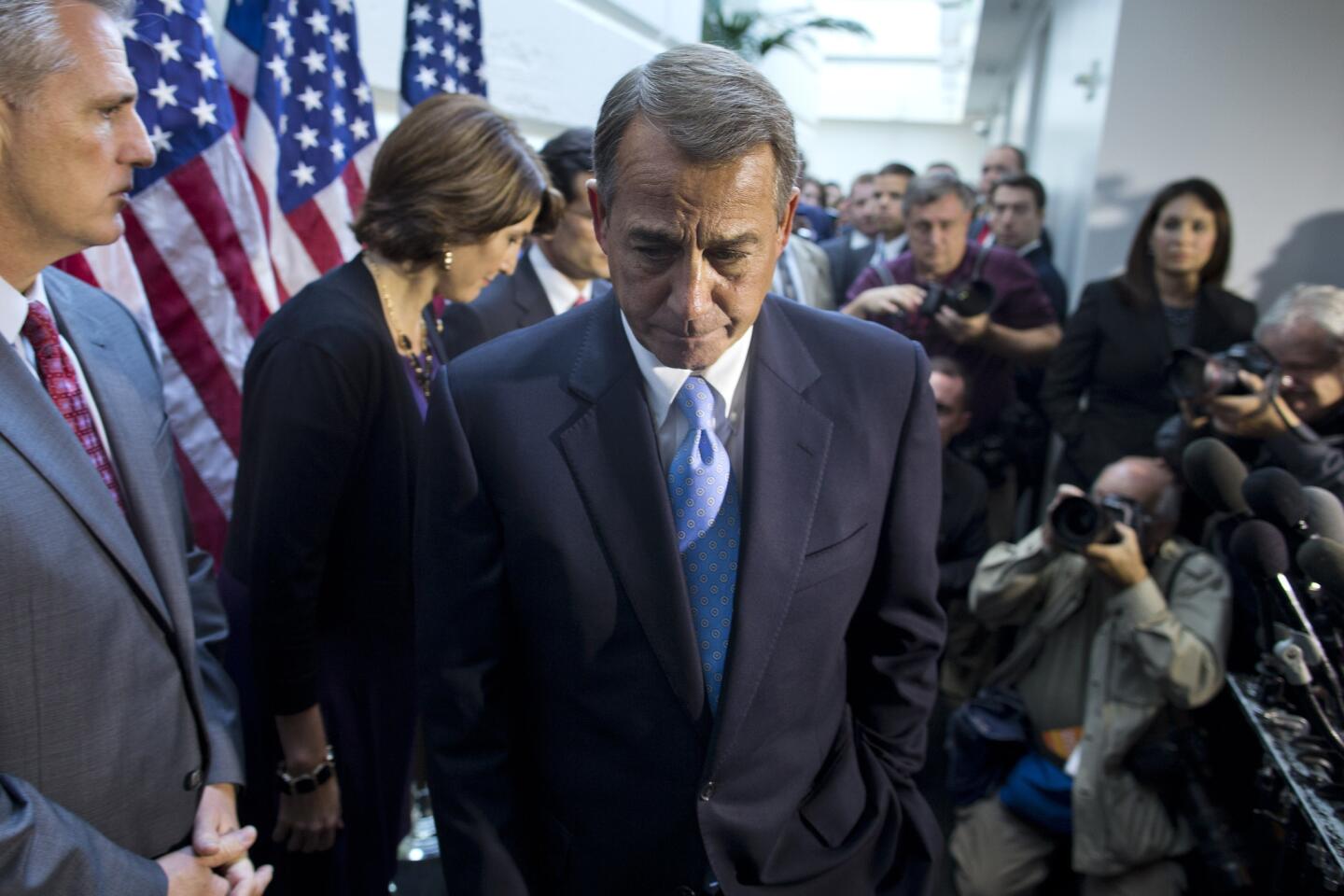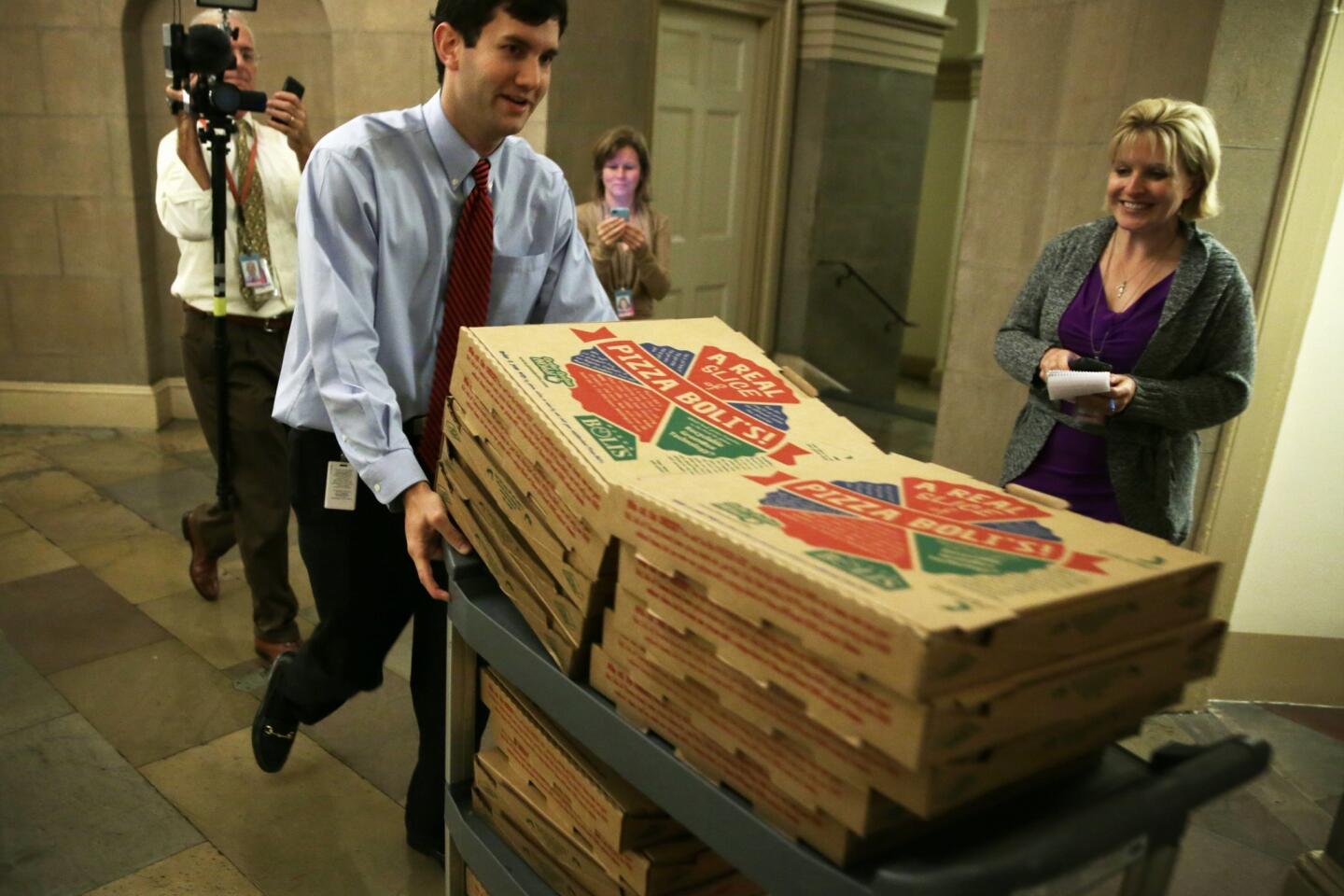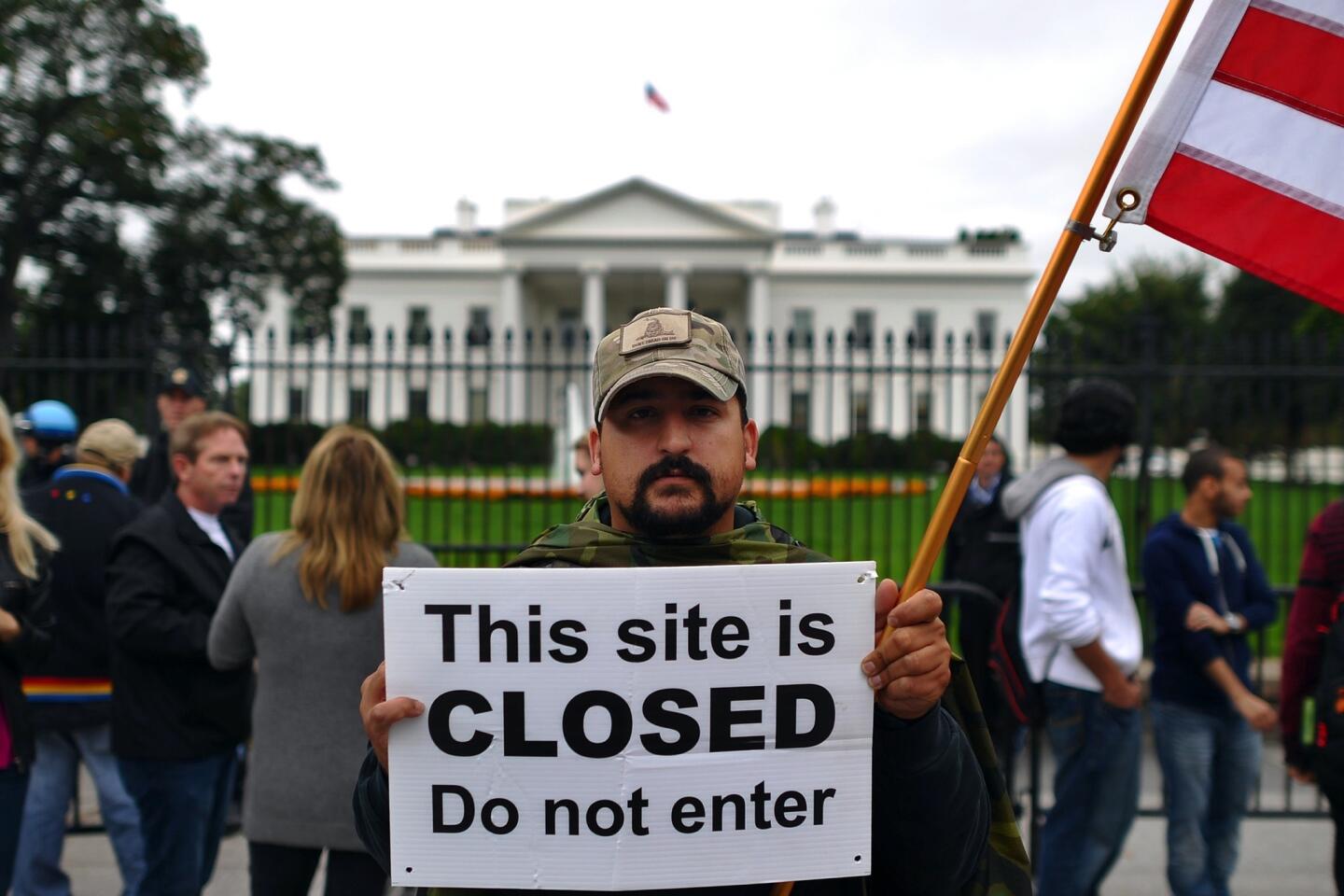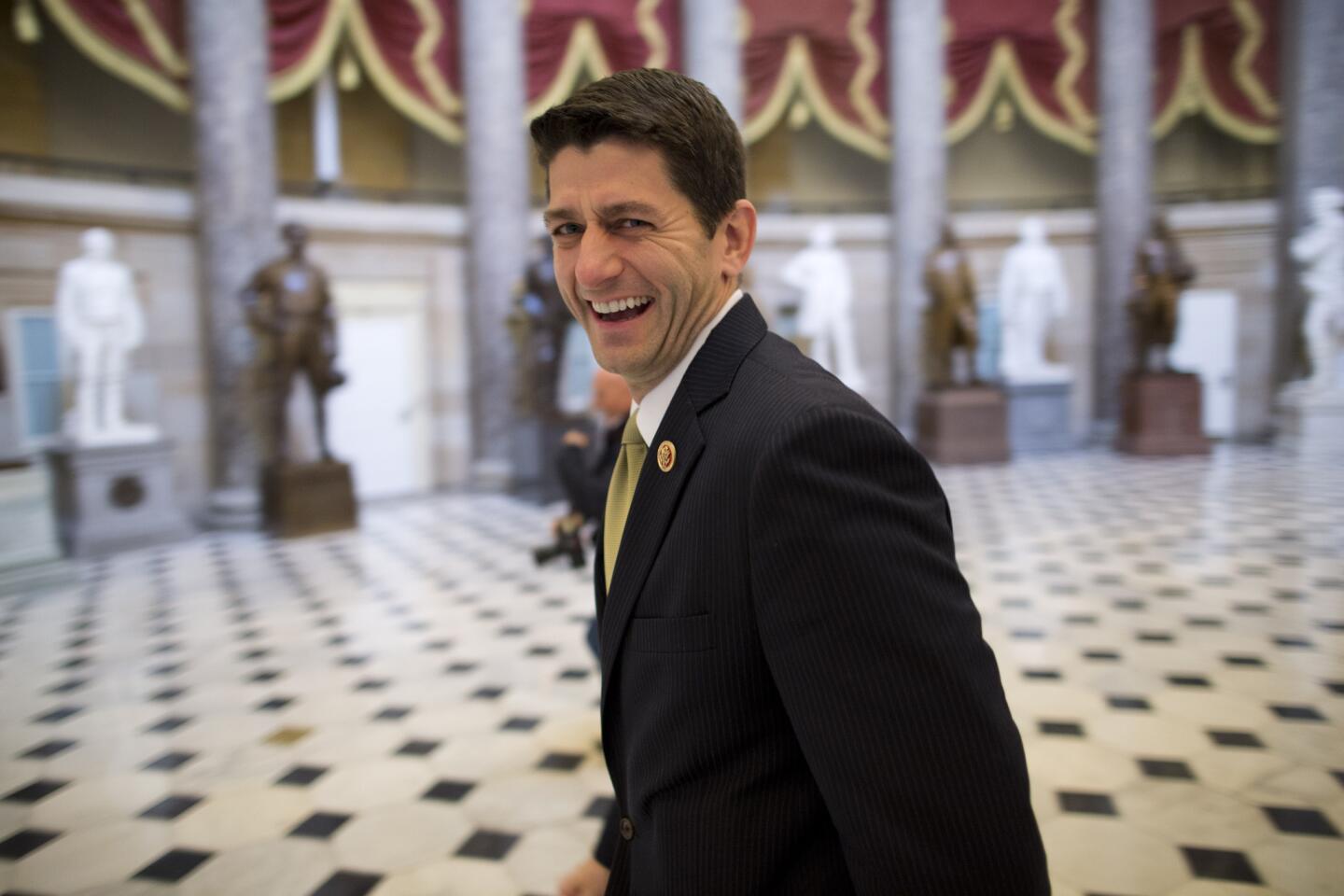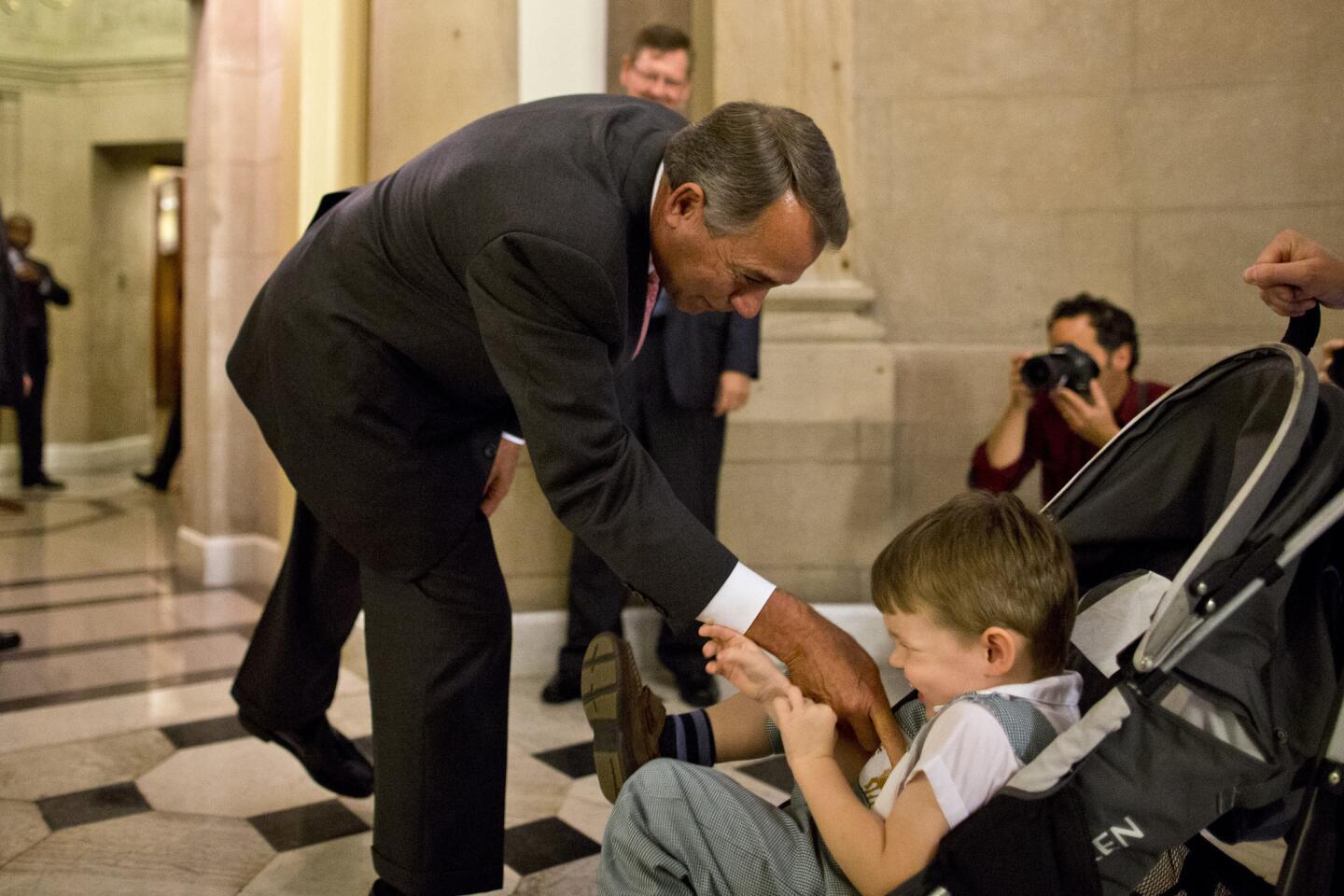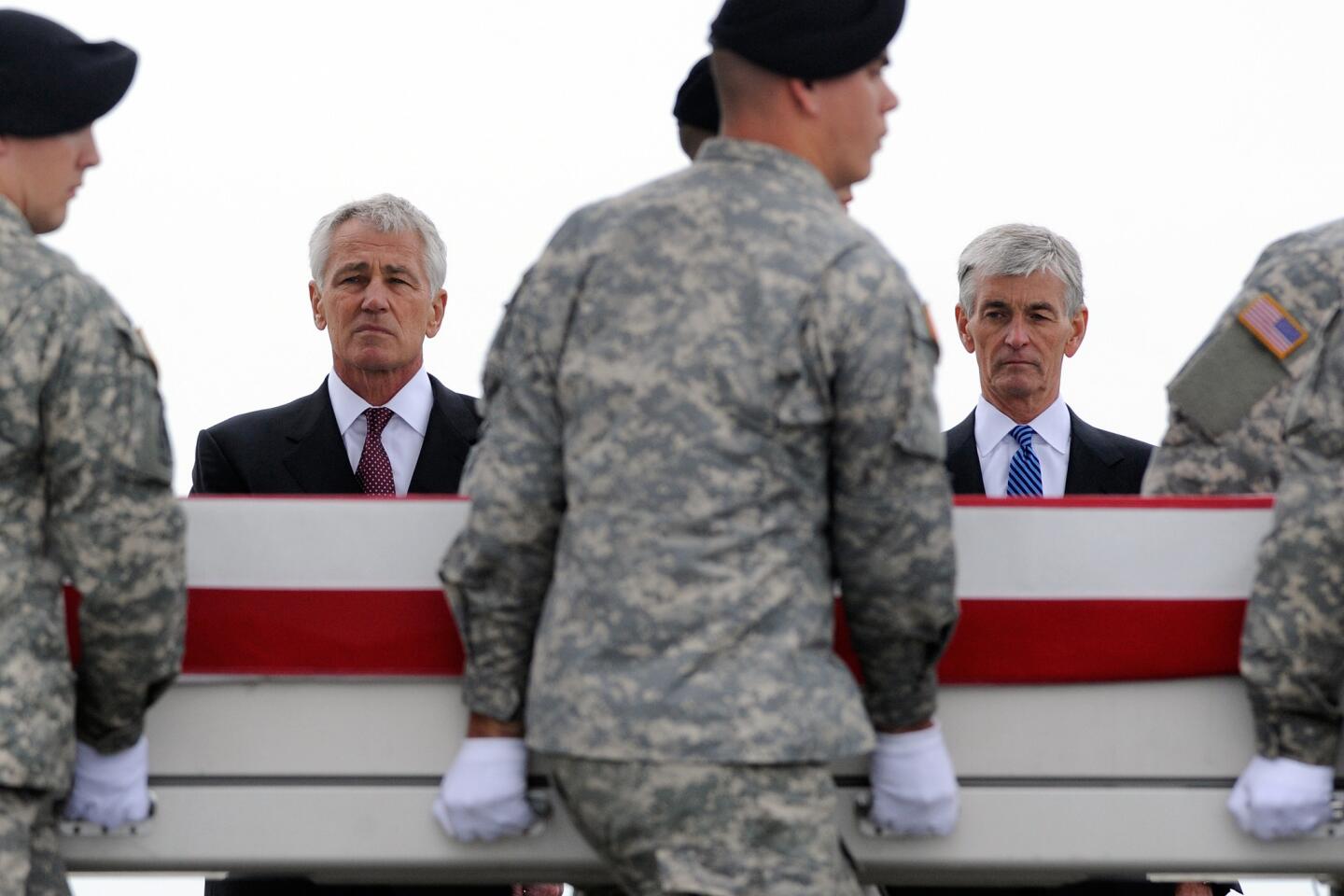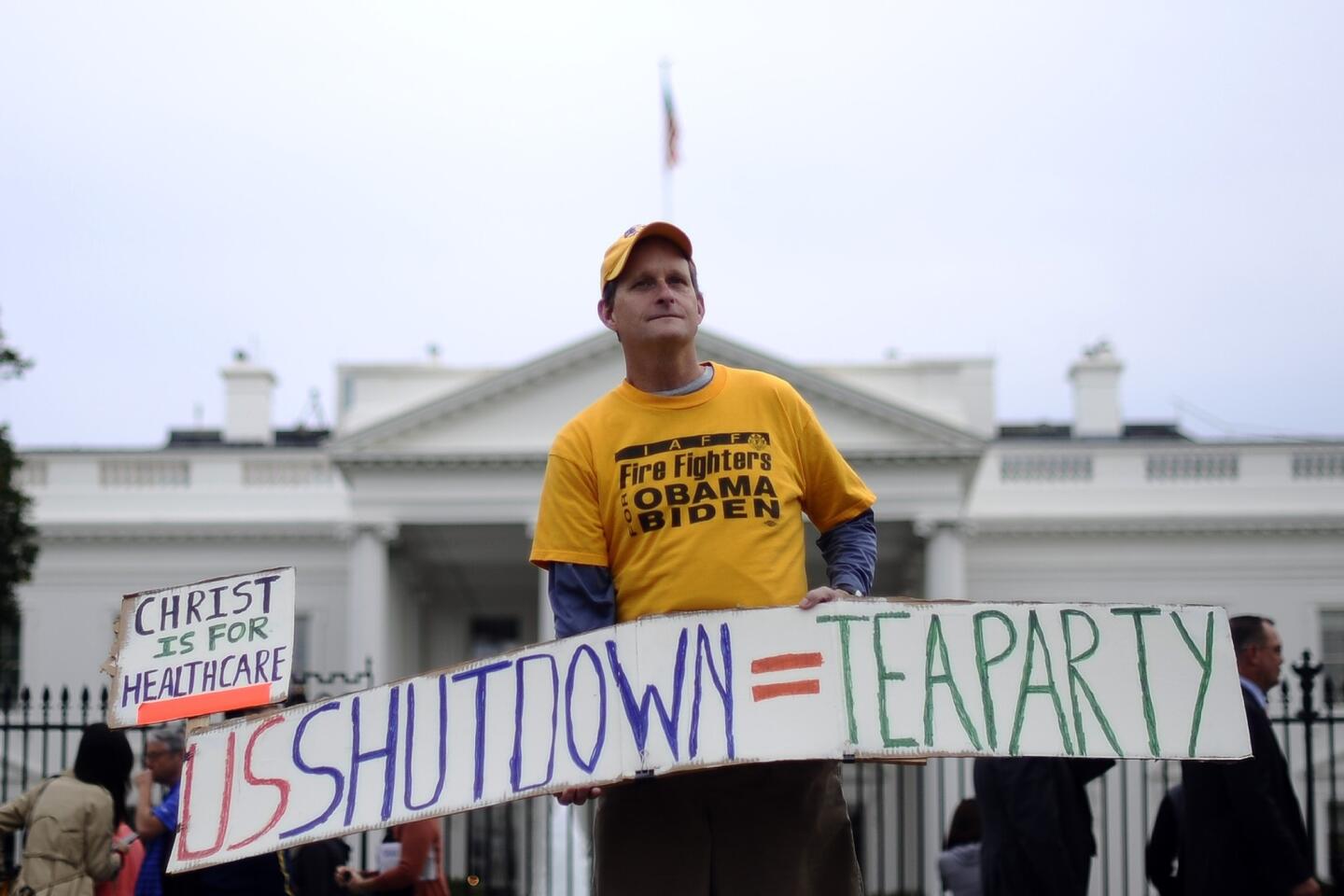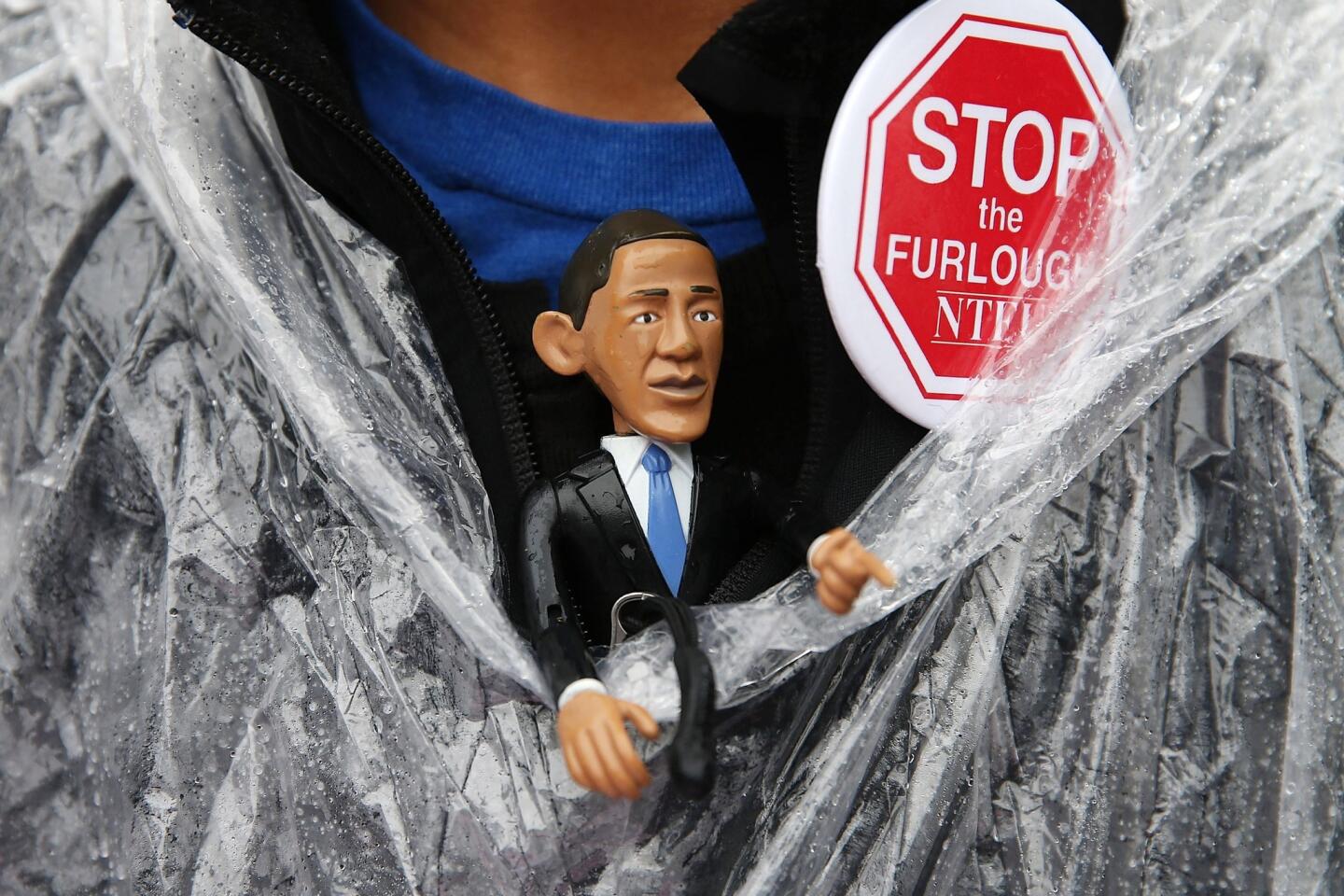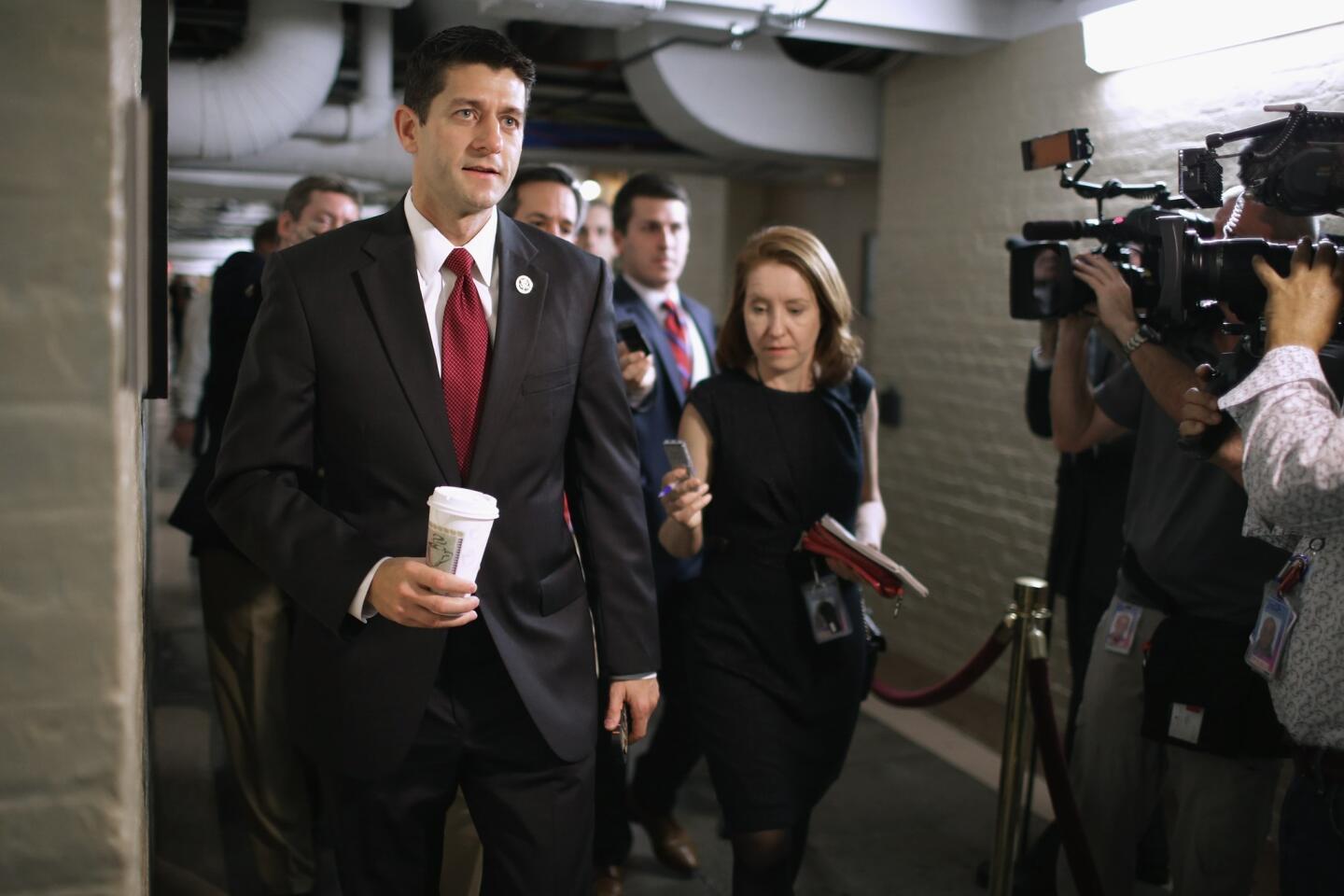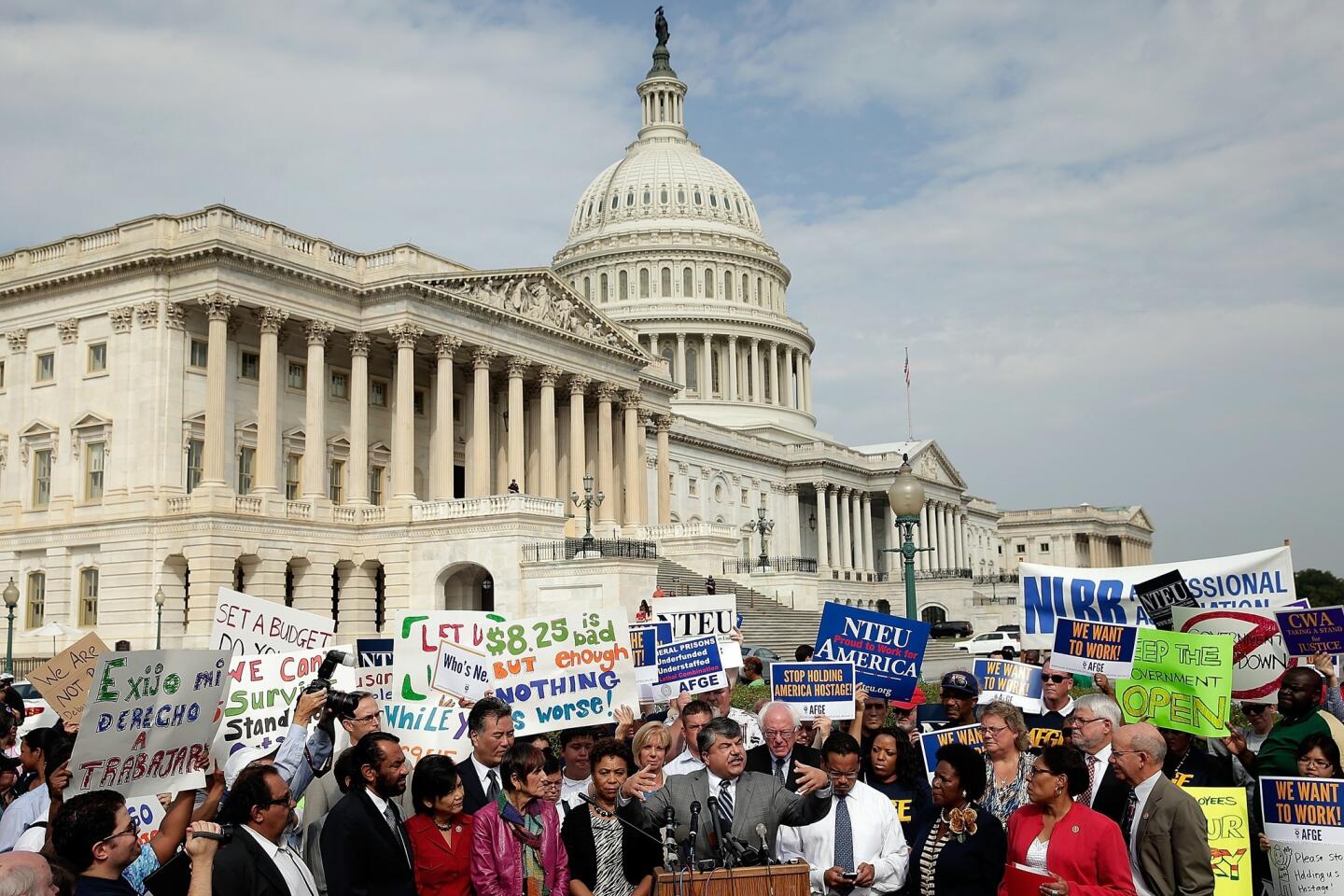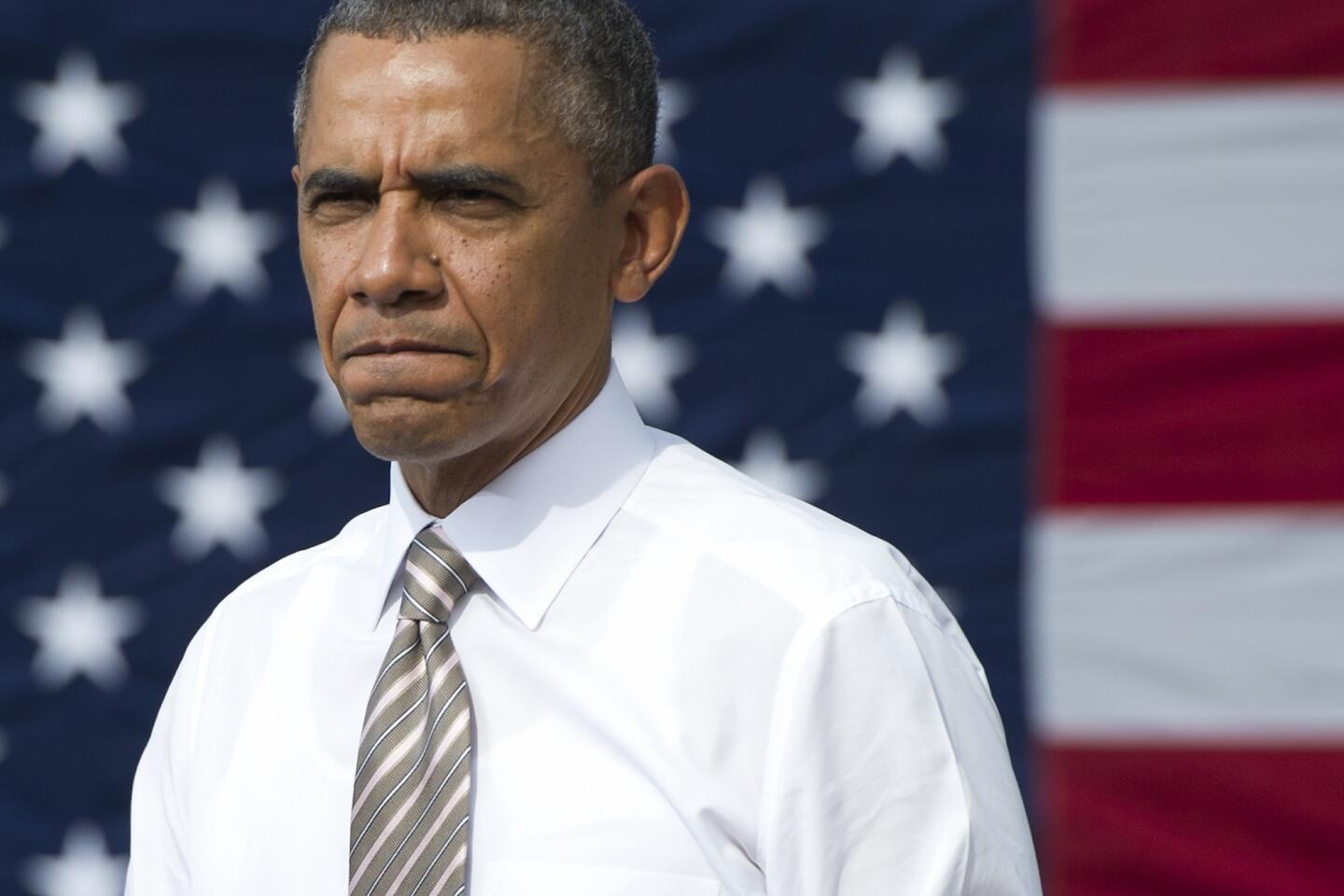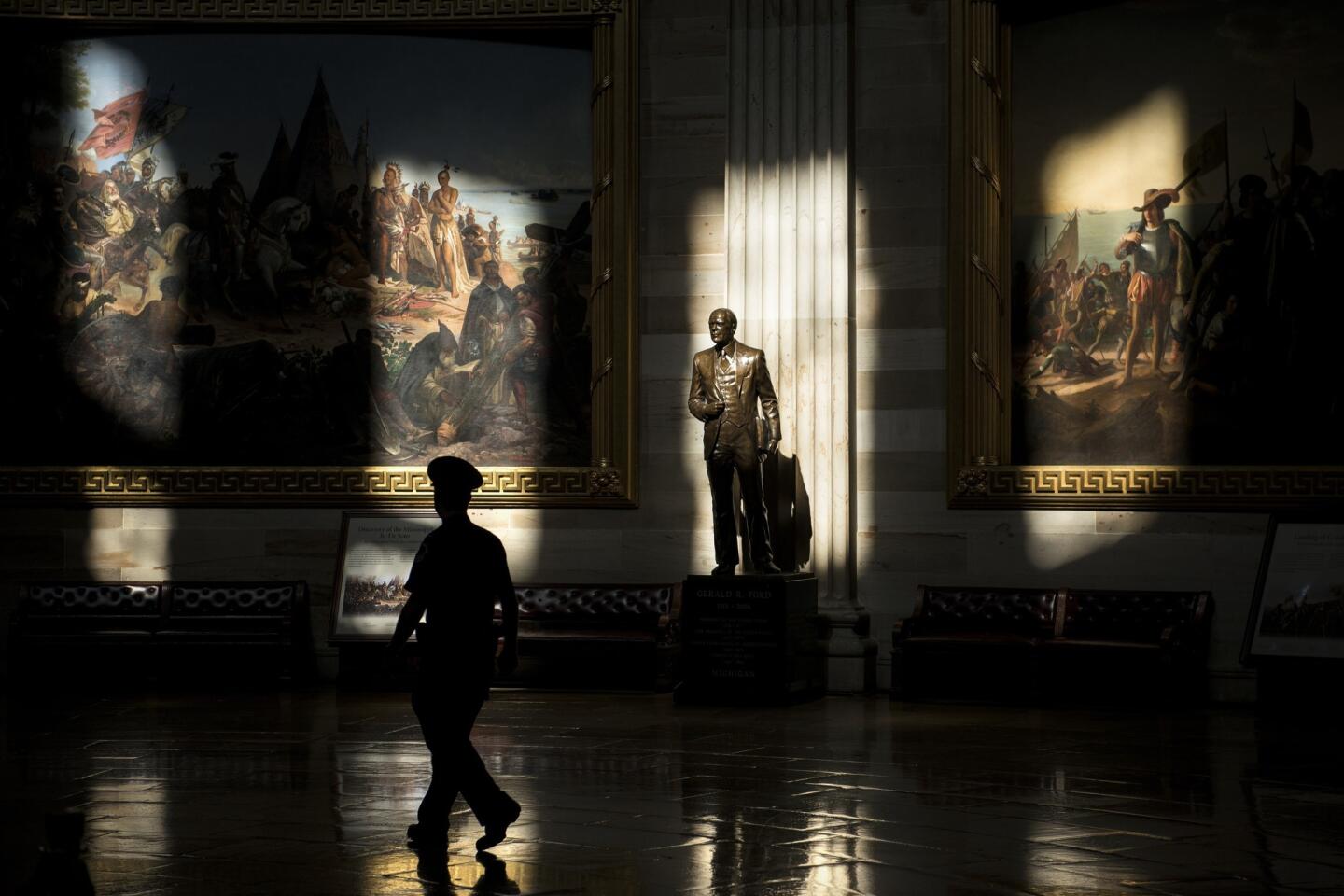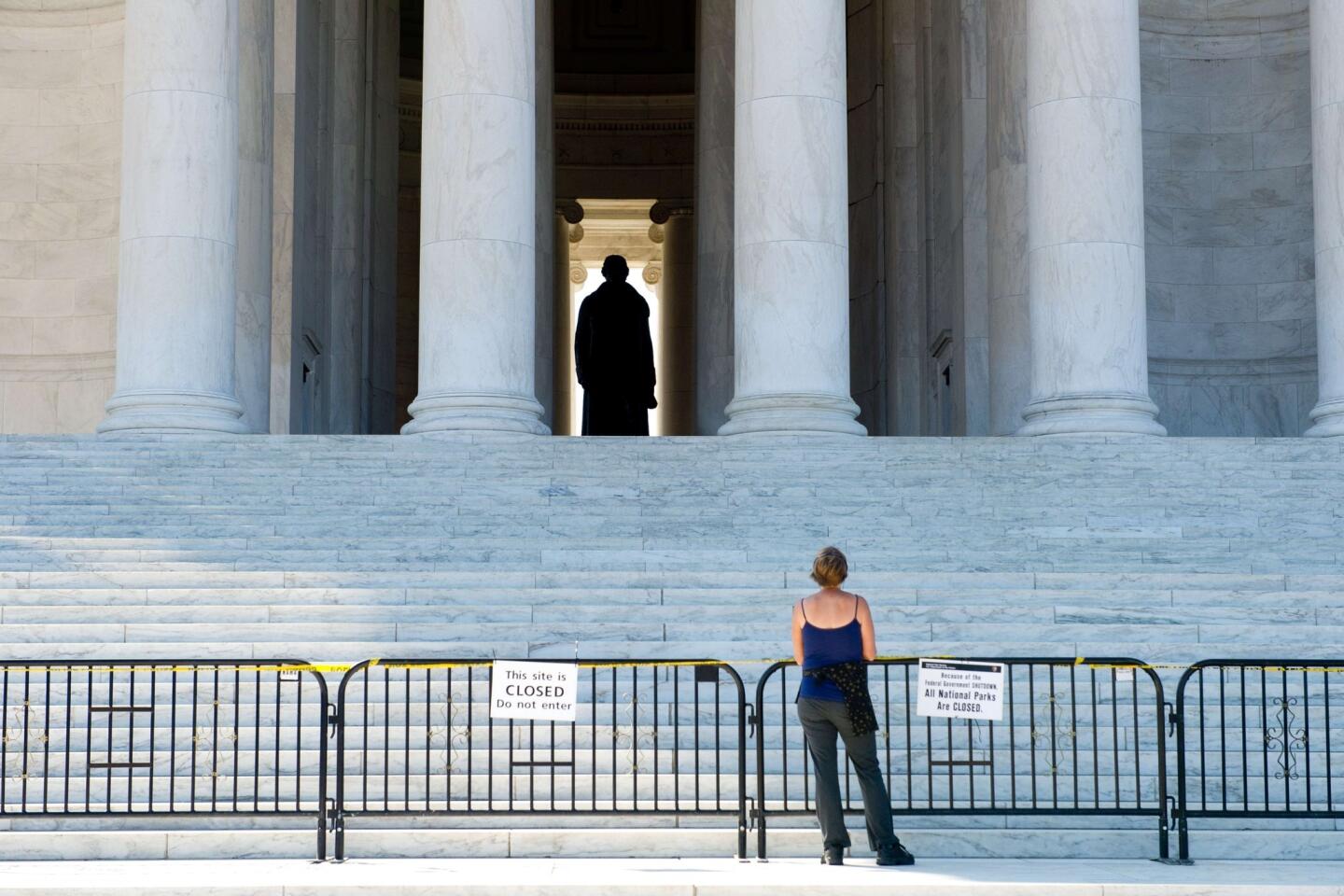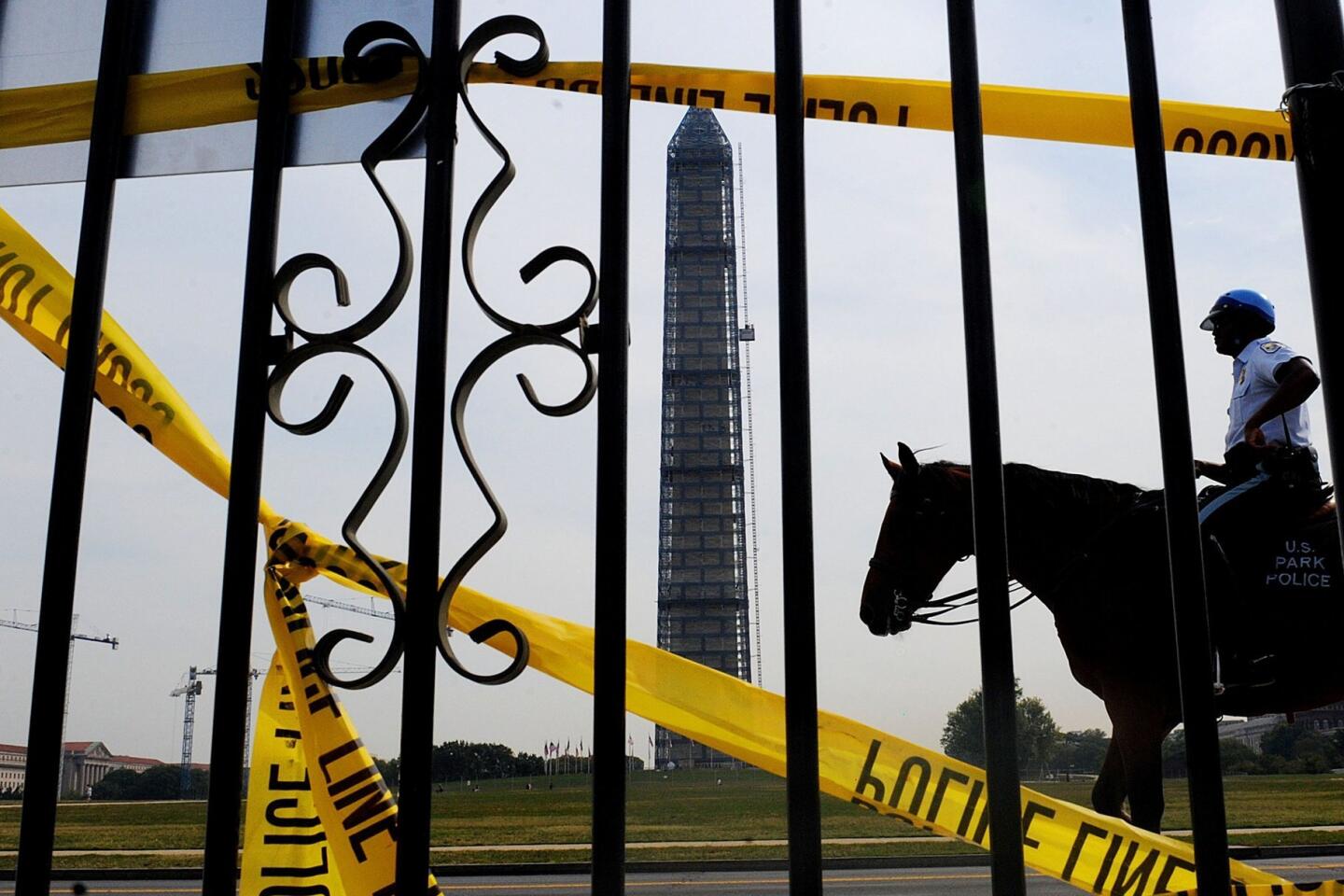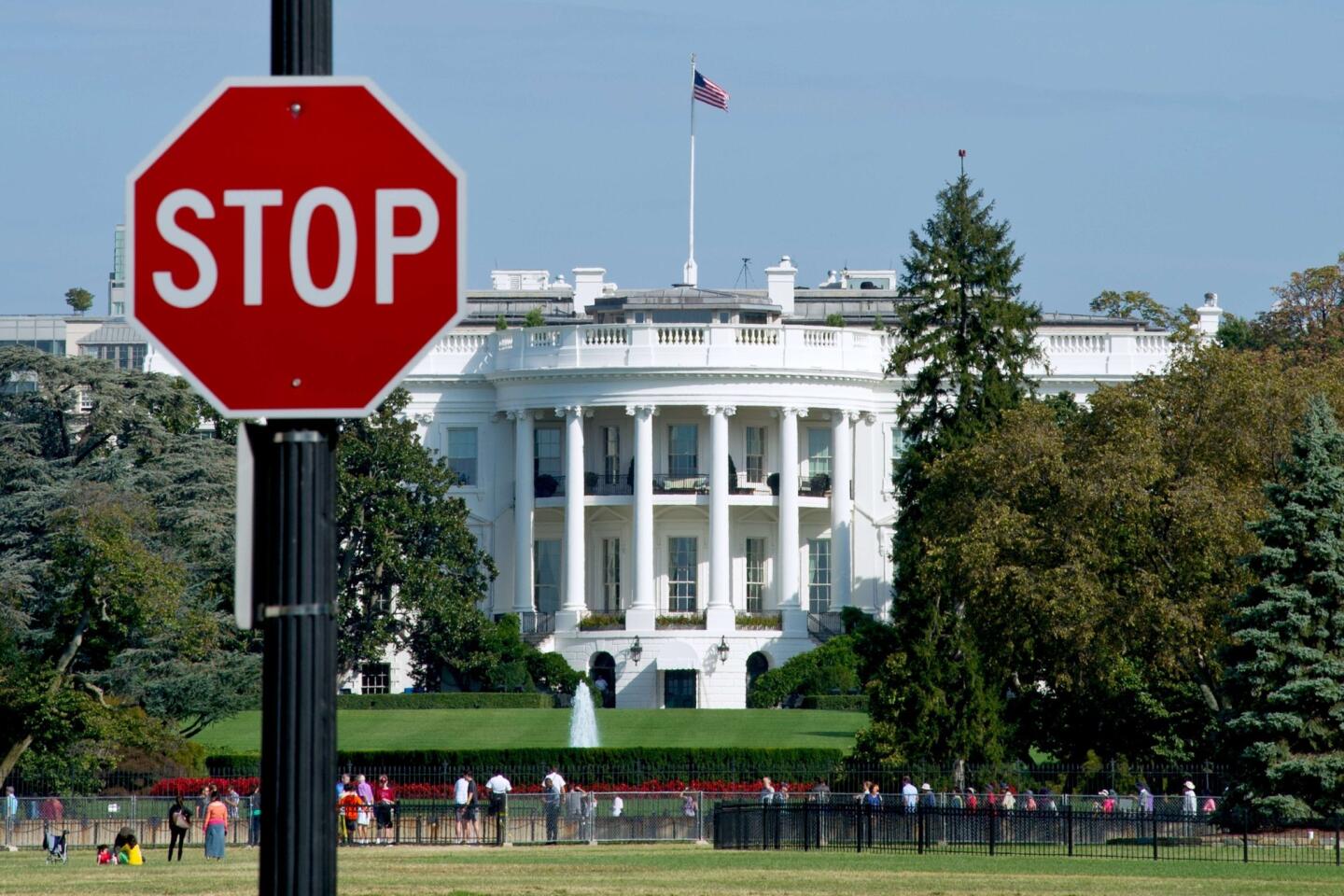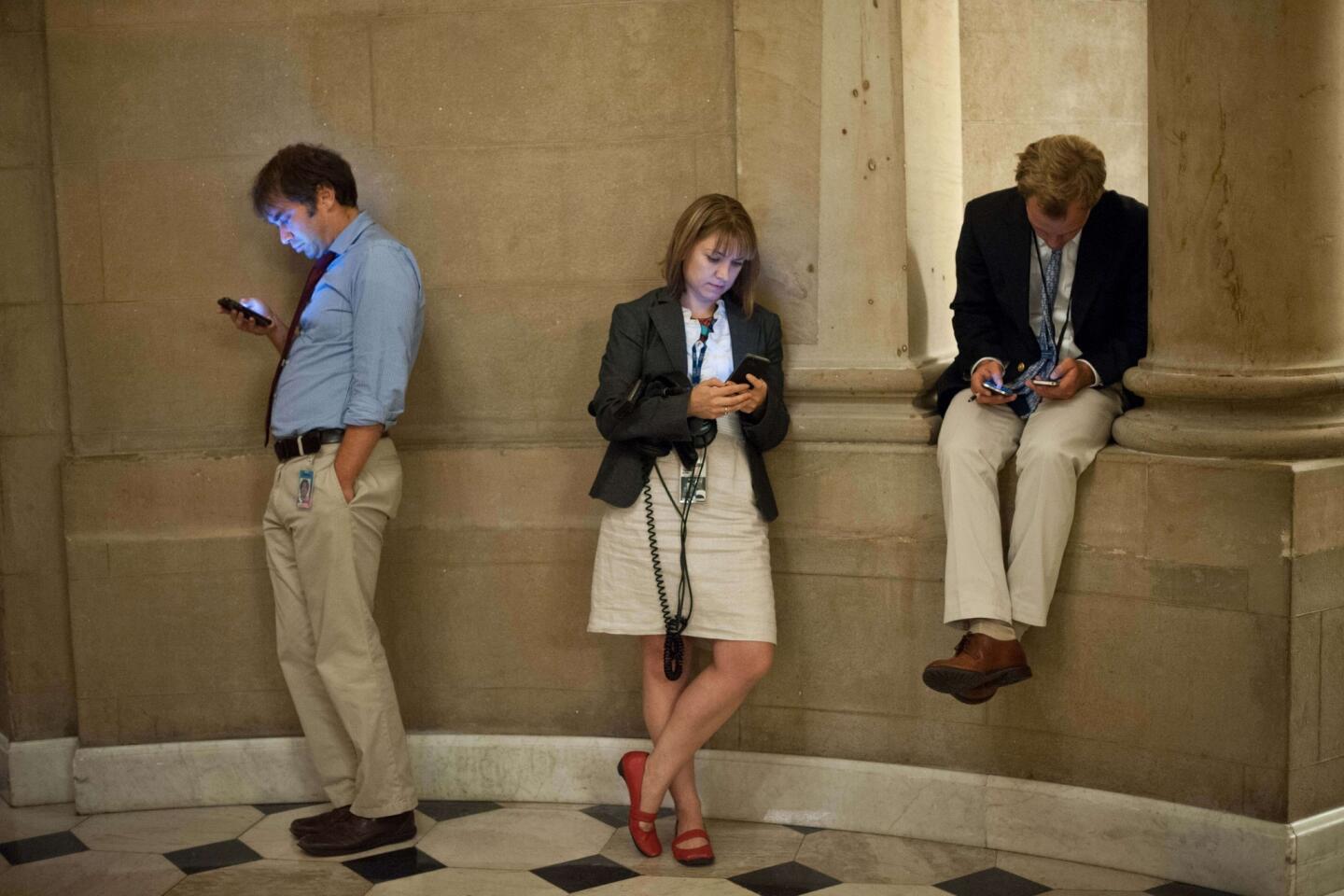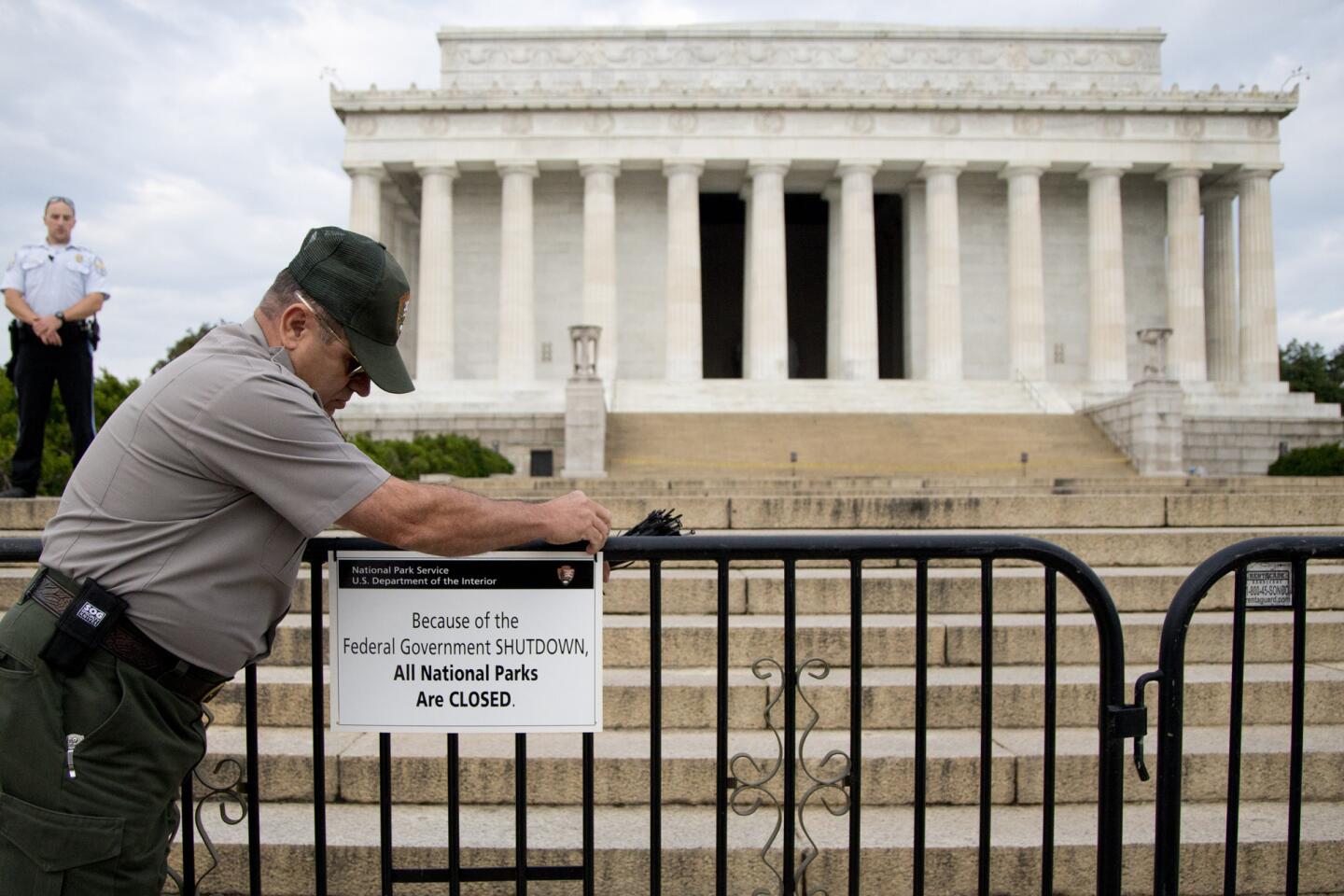Senate votes overwhelmingly to end shutdown, debt limit debate
- Share via
WASHINGTON -- By an overwhelming vote, the Senate passed a budget compromise Wednesday night that would temporarily reopen federal agencies and allow the Treasury to continue borrowing to pay the nation’s bills, averting the possibility of a default that could have seriously damaged the economy.
The legislation now goes to the House, which was expected to follow suit later Wednesday night. Federal agencies could begin reopening in the morning, although full operation in some cases could take longer.
The vote, 81 to 18, approved an agreement negotiated by Senate Majority Leader Harry Reid (D-Nev.) and Minority Leader Mitch McConnell (R-Ky.). It ends a political standoff that shut down federal programs for 16 days and led to the furlough of hundreds of thousands of federal workers.
The deal makes no significant changes in President Obama’s healthcare law, which Republicans had previously demanded.
FULL COVERAGE: The U.S. government shutdown
Earlier, Speaker John A. Boehner (R-Ohio) said his Republican majority in the House would not block the bill and would, for now, end its campaign to extract concessions on the healthcare law and other federal spending.
“The House has fought with everything it has to convince the president of the United States to engage in bipartisan negotiations aimed at addressing our country’s debt and providing fairness for the American people under Obamacare,” Boehner said in a statement.
“That fight will continue. But blocking the bipartisan agreement reached today by the members of the Senate will not be a tactic for us.”
Under the deal, furloughed federal workers would receive back pay. The deal also includes a provision, previously approved by the Senate, that would allow officials in flood-damaged Colorado to tap federal emergency highway money to repair roads.
One change in the healthcare law was included in the legislation, requiring the government to verify the income of those Americans who receive financial help in buying insurance on the new healthcare exchanges the law established. Democrats said they had no objections to the provision because it largely repeated language already in the law.
The temporary nature of the agreement all but ensures another budget battle this winter, unless Congress drafts a new agreement at that time.
QUIZ: Test your knowledge of the debt limit
Under the legislation, the nation’s nation’s $16.7-trillion debt limit would be suspended until Feb. 7 to allow continued borrowing. The Treasury Department would be able to use “extraordinary measures” to temporarily pay bills after that date, meaning that the next debt ceiling crunch would probably not occur until some point in the spring.
The deal also calls for Congress to establish a conference committee made up of members of both houses to try to work out a spending plan by Dec. 13. The goal would be to avert another round of automatic “sequester” cuts that many in both parties want to avoid. Congress did not give federal agencies flexibility that some lawmakers had sought for handling that next round of cuts.
Follow Politics Now on Twitter and Facebook
Twitter: @LisaMascaroinDC
Twitter: @MikeMemoli
Twitter: @ByBrianBennett
More to Read
Sign up for Essential California
The most important California stories and recommendations in your inbox every morning.
You may occasionally receive promotional content from the Los Angeles Times.

